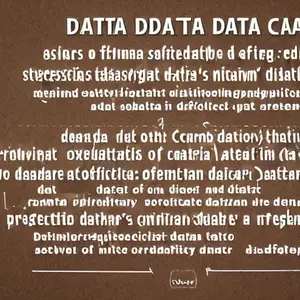Understanding ASCA Mindsets and Behaviors for Student Success
The American School Counselor Association (ASCA) has developed a comprehensive framework: the ASCA Mindsets and Behaviors for Student Success. This framework provides a vital roadmap for school counselors, guiding them in assisting students to navigate their educational journey and prepare for future challenges. This article delves into the ASCA framework's significance, structure, and practical applications in fostering student success, offering a detailed exploration of its components and their implementation.
The Importance of ASCA Mindsets and Behaviors
The ASCA Mindsets and Behaviors are not merely theoretical constructs; they offer a practical, actionable plan for students' academic, career, and social-emotional growth. By focusing on both mindsets (students' beliefs about themselves and their capabilities) and behaviors (their observable actions and skills), the framework cultivates a holistic approach to student well-being and achievement. This integrated approach recognizes that a student's success is not solely determined by academic performance, but also by their self-belief, social interactions, and ability to manage their own lives effectively.
Defining Mindsets and Behaviors
Mindsets: These are the underlying beliefs and assumptions that shape students' perceptions of their abilities, potential, and self-worth. A growth mindset, for instance, encourages students to view challenges as opportunities for learning and development, fostering deeper engagement in their studies and a greater resilience in the face of setbacks. Conversely, a fixed mindset can limit a student's willingness to take risks or persist through difficulty. The cultivation of positive mindsets is crucial for overall student success.
Behaviors: These are the observable actions and skills students demonstrate in the learning process and in their interactions with others. Effective study habits, proficient time management, strong communication skills, and the ability to collaborate effectively all contribute significantly to academic success and overall well-being. These behaviors are not innate; they are learned and developed over time through consistent practice and guidance.
Overview of ASCA Mindsets
The ASCA framework identifies six key mindsets that are essential for student success. These mindsets represent the core beliefs and attitudes that underpin a student's ability to thrive academically, socially, and emotionally. They are interconnected and mutually reinforcing, creating a foundation for a positive and productive learning experience.
- Belief in the Development of the Whole Self: This mindset emphasizes the importance of recognizing and nurturing all aspects of a student's identity – academic, social, emotional, and physical. It promotes a holistic view of well-being and acknowledges that success is multifaceted.
- Self-Confidence in Ability to Succeed: This involves fostering a belief in one's own capabilities and potential. Students with self-confidence are more likely to take on challenges, persevere through difficulties, and ultimately achieve their goals. Building self-efficacy is a critical component of this mindset.
- Sense of Belonging in School: Feeling connected and accepted within the school community is crucial for student well-being and academic success. A strong sense of belonging fosters a supportive and inclusive environment where students feel safe, respected, and valued.
- Understanding the Importance of Postsecondary Education: This mindset involves helping students understand the value and benefits of pursuing further education beyond high school, whether it be college, vocational training, or other post-secondary options. It emphasizes the importance of planning for the future and exploring various career pathways.
- Belief in Using Abilities to Their Fullest: This encourages students to identify their strengths and talents and to utilize them to their maximum potential. It promotes self-awareness and encourages students to pursue opportunities that align with their interests and abilities.
- Positive Attitude Toward Work and Learning: This mindset emphasizes the importance of developing a proactive and engaged approach to learning. Students with a positive attitude are more likely to be motivated, persistent, and successful in their academic pursuits.
Overview of ASCA Behaviors
The ASCA framework categorizes behaviors into three interconnected domains: Learning Strategies, Self-Management Skills, and Social Skills. These domains represent the observable actions and skills that contribute directly to a student's academic, personal, and social success. Development in each area is crucial for holistic growth.
- Learning Strategies: These are the cognitive processes and techniques students use to acquire, process, and retain information effectively. Examples include active listening, effective note-taking, utilizing mnemonics, time management techniques for studying, and critical thinking skills.
- Self-Management Skills: These are the skills students use to regulate their emotions, behaviors, and thoughts effectively. This includes goal setting, prioritizing tasks, managing time, coping with stress, self-motivation, and perseverance. Strong self-management skills are critical for success in all areas of life.
- Social Skills: These encompass the behaviors and interactions students use to navigate social situations effectively and build positive relationships. Effective communication, conflict resolution, empathy, collaboration, respect for self and others, and teamwork are all key social skills.
Detailed Breakdown of ASCA Standards
The ASCA Mindsets and Behaviors encompass a total of 35 standards: 6 Mindset Standards and 29 Behavior Standards. Each standard promotes specific attitudes, knowledge, and skills that contribute to student success. These standards provide a comprehensive framework for school counselors to guide students' development across all aspects of their lives.
Mindset Standards
- M1: Belief in development of the whole self. This standard emphasizes the importance of considering all aspects of a student's well-being – academic, social, emotional, and physical.
- M2: Self-confidence in ability to succeed. This standard focuses on fostering self-belief and the conviction that students can achieve their goals.
- M3: Sense of belonging in school. This standard highlights the significance of creating a supportive and inclusive school environment where students feel accepted and valued.
- M4: Understanding that postsecondary education is essential. This standard emphasizes the importance of planning for the future and exploring various post-secondary options.
- M5: Belief in using abilities to their fullest. This standard encourages students to identify and utilize their strengths and talents.
- M6: Positive attitude toward work and learning. This standard promotes a proactive and engaged approach to learning and academic pursuits.
Behavior Standards
The 29 Behavior Standards are further categorized into the three domains mentioned previously: Learning Strategies, Self-Management Skills, and Social Skills. Each standard outlines specific, observable behaviors students should develop to enhance their overall success.
Learning Strategies
These standards focus on the cognitive processes and techniques students employ to effectively learn and retain information. Examples include:
- B-LS 1: Demonstrate critical-thinking skills. This involves analyzing information, forming reasoned judgments, and solving problems effectively.
- B-LS 2: Apply self-motivation skills. This includes setting goals, staying focused, and persevering despite challenges.
- B-LS 3: Utilize effective time management strategies. This involves planning and organizing time effectively to maximize productivity.
- B-LS 4: Employ effective note-taking and organizational techniques. This involves developing systems for recording and organizing information efficiently.
- B-LS 5: Practice active listening and information seeking. This involves attentively listening and asking clarifying questions to fully understand information.
- B-LS 6: Demonstrate effective study habits and strategies. This encompasses various techniques for maximizing learning and retention.
Self-Management Skills
These standards focus on the skills students use to regulate their emotions, behaviors, and thoughts. Examples include:
- B-SMS 1: Set personal goals. This involves defining specific, measurable, achievable, relevant, and time-bound goals.
- B-SMS 2: Manage stress effectively. This includes developing coping mechanisms to manage anxiety and pressure.
- B-SMS 3: Practice self-discipline and perseverance. This involves maintaining focus and effort despite difficulties.
- B-SMS 4: Manage time effectively. This includes planning and prioritizing tasks to maximize productivity.
- B-SMS 5: Demonstrate self-awareness and emotional intelligence. This involves understanding and managing one's own emotions and recognizing the emotions of others.
- B-SMS 6: Seek help when needed. This promotes a proactive approach to overcoming challenges and seeking support when necessary.
Social Skills
These standards focus on the behaviors and interactions students use to build positive relationships and navigate social situations effectively. Examples include:
- B-SS 1: Demonstrate effective communication skills. This includes clear and respectful verbal and nonverbal communication.
- B-SS 2: Show respect for self and others. This involves treating oneself and others with dignity and consideration.
- B-SS 3: Work collaboratively in groups. This includes participating effectively in teamwork and contributing to group goals.
- B-SS 4: Resolve conflicts constructively. This involves finding mutually acceptable solutions to disagreements.
- B-SS 5: Demonstrate empathy and understanding. This involves understanding and sharing the feelings of others.
- B-SS 6: Build and maintain positive relationships. This involves cultivating supportive and respectful relationships with peers and adults.
Implementing ASCA Mindsets and Behaviors
School counselors can effectively integrate these ASCA mindsets and behaviors through a variety of approaches, tailoring their strategies to meet the unique needs of their students and the school environment. A multifaceted approach is often the most effective.
- Curriculum Development: Incorporating ASCA standards into lesson plans and classroom activities can directly teach these crucial skills and mindsets. This can involve interactive exercises, group projects, discussions, and presentations.
- Individualized Counseling: One-on-one counseling sessions provide opportunities for school counselors to assess individual student needs, identify areas for growth, and develop personalized strategies to address specific challenges. This allows for focused attention and tailored support.
- Group Activities: Group counseling sessions can facilitate the development of social skills, collaborative learning, and a sense of belonging. Group activities can reinforce key concepts and provide peer support.
- Assessment and Evaluation: Regular assessments can help monitor student progress in developing these mindsets and behaviors. This information can be used to adjust interventions and ensure that students are receiving the appropriate support.
- Parent and Teacher Collaboration: Working closely with parents and teachers to ensure consistency in reinforcing these mindsets and behaviors at home and in the classroom is critical for sustained success.
- School-Wide Initiatives: Implementing school-wide programs and initiatives focused on promoting positive mindsets and behaviors can create a supportive and nurturing learning environment for all students.
The Impact of the ASCA Framework on Student Success
Research consistently demonstrates the positive impact of incorporating the ASCA framework on student outcomes across various domains.
- Academic Achievement: Students who cultivate growth mindsets and develop effective learning strategies tend to exhibit higher academic performance and greater academic persistence.
- Career Readiness: By fostering an understanding of the importance of postsecondary education and developing essential self-management and social skills, the ASCA framework equips students with the tools necessary for success in their future careers.
- Social-Emotional Development: The focus on social-emotional learning and the development of strong social skills contributes to a positive school climate, enhanced peer relationships, and improved overall well-being.
- Improved Mental Health: By addressing stress management, emotional regulation, and fostering a sense of belonging, the framework contributes to the students' mental health and reduces the risk of mental health challenges.
- Reduced Disciplinary Issues: By equipping students with strong self-management and social skills, the framework can contribute to a reduction in disciplinary issues and a more positive school environment.
Conclusion
The ASCA Mindsets and Behaviors framework is an invaluable tool for comprehensive school counseling programs. By focusing on both the underlying beliefs (mindsets) and observable actions (behaviors), school counselors can effectively guide students toward personal growth, academic achievement, and career readiness. Incorporating these standards into school counseling programs creates a supportive and nurturing learning environment where all students have the opportunity to thrive and reach their full potential. The holistic approach of the ASCA framework ensures that students are not just academically prepared but also emotionally intelligent, socially adept, and equipped to navigate the challenges and opportunities of life beyond school.




